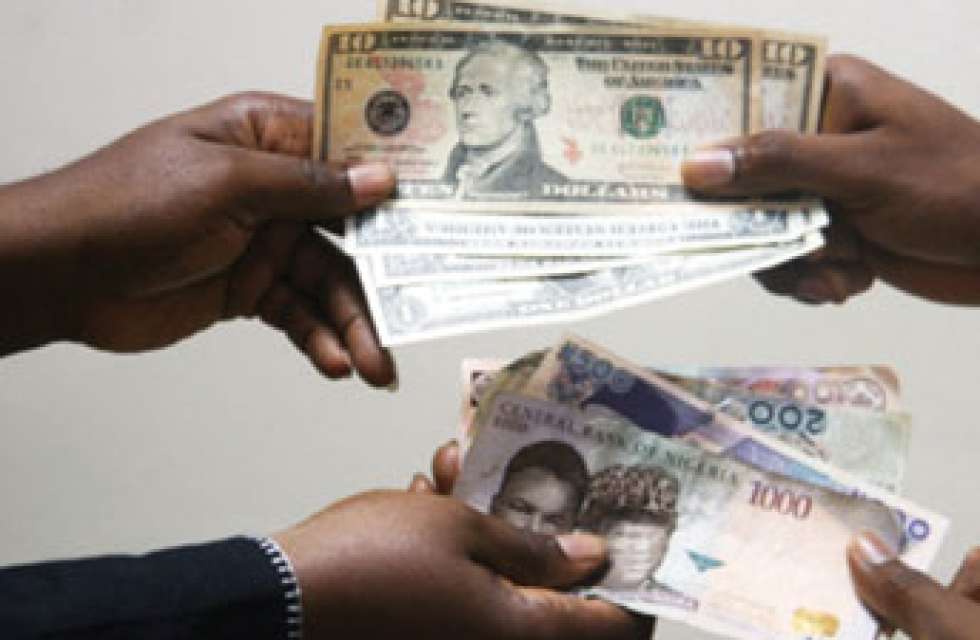 Some financial experts have said Nigeria is in a very comfortable zone to borrow more despite the jump in the country’s debt stock to N16.3trillion an equivalent of $51.7billion as at June 30, 2016.
Some financial experts have said Nigeria is in a very comfortable zone to borrow more despite the jump in the country’s debt stock to N16.3trillion an equivalent of $51.7billion as at June 30, 2016.
The Debt Management Office (DMO) data, which showed an increase of $12 billion in the debt stocks within one year, has expressed doubts over the ability of the federal government to raise more debt to finance the 2016 budget.
However, financial analysts say in spite of the rise in the debt stock, the country’s debt to the gross domestic product (GDP) is still favourable for Nigeria, compared to other of its peers.
According to the analysts, the latest report from the DMO shows FGN debt at end-June at $55.6 billion equivalent to 14.6 per cent of 2015 GDP.
 Some financial experts have said Nigeria is in a very comfortable zone to borrow more despite the jump in the country’s debt stock to N16.3trillion an equivalent of $51.7billion as at June 30, 2016.
Some financial experts have said Nigeria is in a very comfortable zone to borrow more despite the jump in the country’s debt stock to N16.3trillion an equivalent of $51.7billion as at June 30, 2016.
The Debt Management Office (DMO) data, which showed an increase of $12 billion in the debt stocks within one year, has expressed doubts over the ability of the federal government to raise more debt to finance the 2016 budget.
However, financial analysts say in spite of the rise in the debt stock, the country’s debt to the gross domestic product (GDP) is still favourable for Nigeria, compared to other of its peers.
According to the analysts, the latest report from the DMO shows FGN debt at end-June at $55.6 billion equivalent to 14.6 per cent of 2015 GDP.
 Some financial experts have said Nigeria is in a very comfortable zone to borrow more despite the jump in the country’s debt stock to N16.3trillion an equivalent of $51.7billion as at June 30, 2016.
Some financial experts have said Nigeria is in a very comfortable zone to borrow more despite the jump in the country’s debt stock to N16.3trillion an equivalent of $51.7billion as at June 30, 2016.
The Debt Management Office (DMO) data, which showed an increase of $12 billion in the debt stocks within one year, has expressed doubts over the ability of the federal government to raise more debt to finance the 2016 budget.
However, financial analysts say in spite of the rise in the debt stock, the country’s debt to the gross domestic product (GDP) is still favourable for Nigeria, compared to other of its peers.
According to the analysts, the latest report from the DMO shows FGN debt at end-June at $55.6 billion equivalent to 14.6 per cent of 2015 GDP.
 Some financial experts have said Nigeria is in a very comfortable zone to borrow more despite the jump in the country’s debt stock to N16.3trillion an equivalent of $51.7billion as at June 30, 2016.
Some financial experts have said Nigeria is in a very comfortable zone to borrow more despite the jump in the country’s debt stock to N16.3trillion an equivalent of $51.7billion as at June 30, 2016.
The Debt Management Office (DMO) data, which showed an increase of $12 billion in the debt stocks within one year, has expressed doubts over the ability of the federal government to raise more debt to finance the 2016 budget.
However, financial analysts say in spite of the rise in the debt stock, the country’s debt to the gross domestic product (GDP) is still favourable for Nigeria, compared to other of its peers.
According to the analysts, the latest report from the DMO shows FGN debt at end-June at $55.6 billion equivalent to 14.6 per cent of 2015 GDP.
 Some financial experts have said Nigeria is in a very comfortable zone to borrow more despite the jump in the country’s debt stock to N16.3trillion an equivalent of $51.7billion as at June 30, 2016.
Some financial experts have said Nigeria is in a very comfortable zone to borrow more despite the jump in the country’s debt stock to N16.3trillion an equivalent of $51.7billion as at June 30, 2016.
The Debt Management Office (DMO) data, which showed an increase of $12 billion in the debt stocks within one year, has expressed doubts over the ability of the federal government to raise more debt to finance the 2016 budget.
However, financial analysts say in spite of the rise in the debt stock, the country’s debt to the gross domestic product (GDP) is still favourable for Nigeria, compared to other of its peers.
According to the analysts, the latest report from the DMO shows FGN debt at end-June at $55.6 billion equivalent to 14.6 per cent of 2015 GDP.
 Some financial experts have said Nigeria is in a very comfortable zone to borrow more despite the jump in the country’s debt stock to N16.3trillion an equivalent of $51.7billion as at June 30, 2016.
Some financial experts have said Nigeria is in a very comfortable zone to borrow more despite the jump in the country’s debt stock to N16.3trillion an equivalent of $51.7billion as at June 30, 2016.
The Debt Management Office (DMO) data, which showed an increase of $12 billion in the debt stocks within one year, has expressed doubts over the ability of the federal government to raise more debt to finance the 2016 budget.
However, financial analysts say in spite of the rise in the debt stock, the country’s debt to the gross domestic product (GDP) is still favourable for Nigeria, compared to other of its peers.
According to the analysts, the latest report from the DMO shows FGN debt at end-June at $55.6 billion equivalent to 14.6 per cent of 2015 GDP.
 Some financial experts have said Nigeria is in a very comfortable zone to borrow more despite the jump in the country’s debt stock to N16.3trillion an equivalent of $51.7billion as at June 30, 2016.
Some financial experts have said Nigeria is in a very comfortable zone to borrow more despite the jump in the country’s debt stock to N16.3trillion an equivalent of $51.7billion as at June 30, 2016.
The Debt Management Office (DMO) data, which showed an increase of $12 billion in the debt stocks within one year, has expressed doubts over the ability of the federal government to raise more debt to finance the 2016 budget.
However, financial analysts say in spite of the rise in the debt stock, the country’s debt to the gross domestic product (GDP) is still favourable for Nigeria, compared to other of its peers.
According to the analysts, the latest report from the DMO shows FGN debt at end-June at $55.6 billion equivalent to 14.6 per cent of 2015 GDP.
 Some financial experts have said Nigeria is in a very comfortable zone to borrow more despite the jump in the country’s debt stock to N16.3trillion an equivalent of $51.7billion as at June 30, 2016.
Some financial experts have said Nigeria is in a very comfortable zone to borrow more despite the jump in the country’s debt stock to N16.3trillion an equivalent of $51.7billion as at June 30, 2016.
The Debt Management Office (DMO) data, which showed an increase of $12 billion in the debt stocks within one year, has expressed doubts over the ability of the federal government to raise more debt to finance the 2016 budget.
However, financial analysts say in spite of the rise in the debt stock, the country’s debt to the gross domestic product (GDP) is still favourable for Nigeria, compared to other of its peers.
According to the analysts, the latest report from the DMO shows FGN debt at end-June at $55.6 billion equivalent to 14.6 per cent of 2015 GDP.














